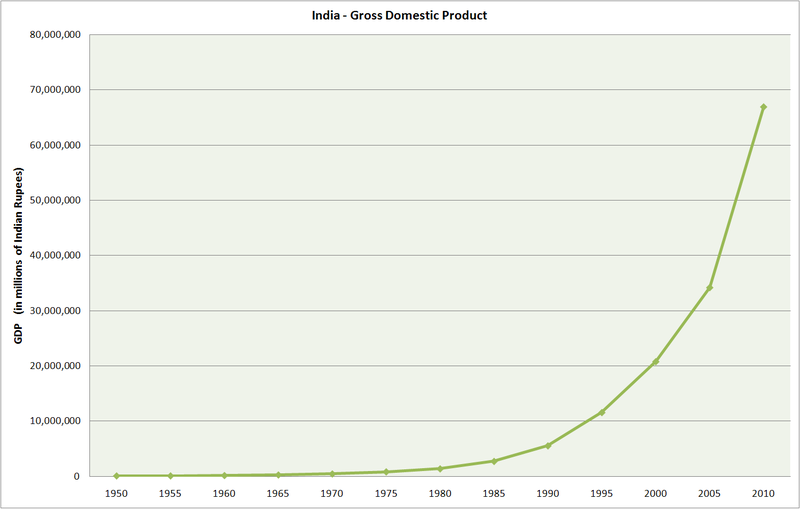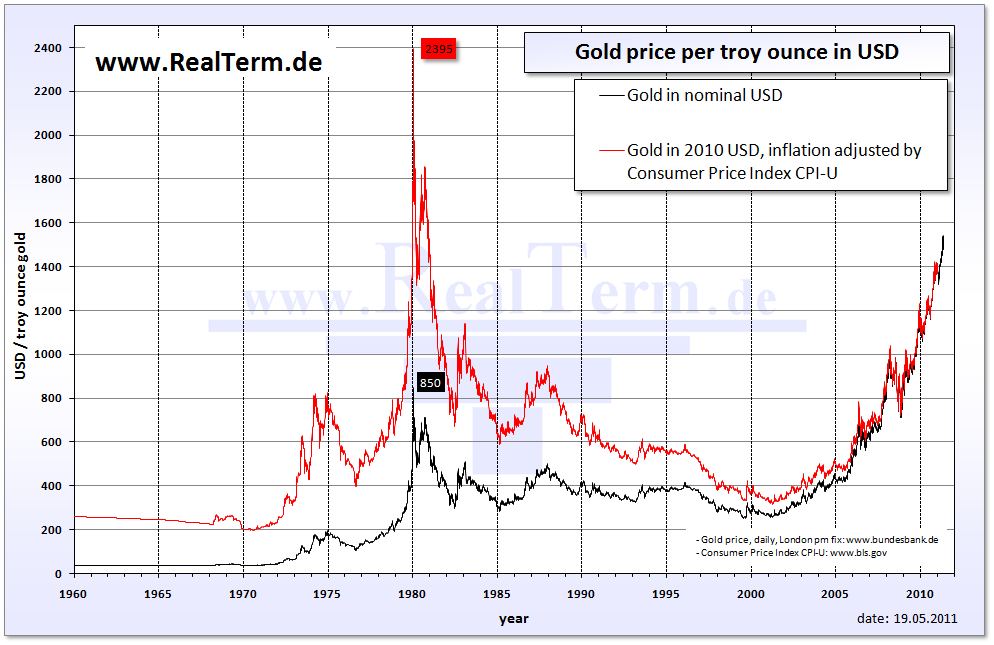Another answer to this question occurred to me as I started learning more about historical uses for gold etc. Perhaps it's a crackpot idea, but I'm going to float it anyway to see what you folks think.
Investing in Gold is an indirect investment in the Economy and GDP of the nation of India. To that extent is it only a hedge against inflation, so long as the indian economy grows at a more rapid rate than your local inflation rate.
Fact, India currently consumes more than 1/3 of gold production, predominantly in the form of Jewelry. And their demand has been growing rapidly, up 69% just between 2009 and 2010 alone. I can't find too many historial consumption numbers for India, but when you look at past articles on this subject, you see phrases like 'one forth' and '20%' being used only a few years go to describe India's consumption levels.
Fact, India has virtually no domestic sources of gold. India’s handful of gold mines produce about 2.5 tonnes of the metal each year, a fraction of the country’s annual consumption of about 800 tonnes.
Fact. Indian Culture places high value on gold as a visible demonstration of wealth. Particularly in situations such In Indian weddings where the bride brings in gold to show her family's status and wealth and it forms part of the dowry given to bride. It is believed that a bride wearing 24k gold on their wedding to bring luck and happiness throughout the married life.
Fact, the recent trends in outsourcing, Indian citizens working abroad sending money home, etc have all lead to a influx of foreign cash to the Indian economy and explosive GDP growth. See the following chart and compare the period of 2000-current with a chart showing the price of gold in other answer here. Notice how the curves parallel each other to a large degree

Potentially unfounded conclusion drawn from above numbers. The rapid growth of the Indian economy, coupled with a rich cultural tradition that values gold as a symbol of wealth, along with a sudden rise in 'wealthy' people due to the economy and influx of foreign cash, has resulted in skyrocketing demand for gold from India, and this large 'consumption' demand is the most likely explanation for the sudden rise in the price of gold over the last several years. Investors then jump on the 'rising price bandwagon' as especially does anyone that can make a profit from selling gold to those seeking to get on said bandwagon.
As such, as long as indian cultural tradition remains unchanged, and their economy remains strong, the resulting increasing demand for gold will sustain current and perhaps increased prices. Should there be any sudden collapse in the Indian GDP, gold will likely tumble in parallel.
disclaimer: not an expert, just observations based off the data I've seen, there may be other parts to the picture of 'gold demand' that I've not considered.


